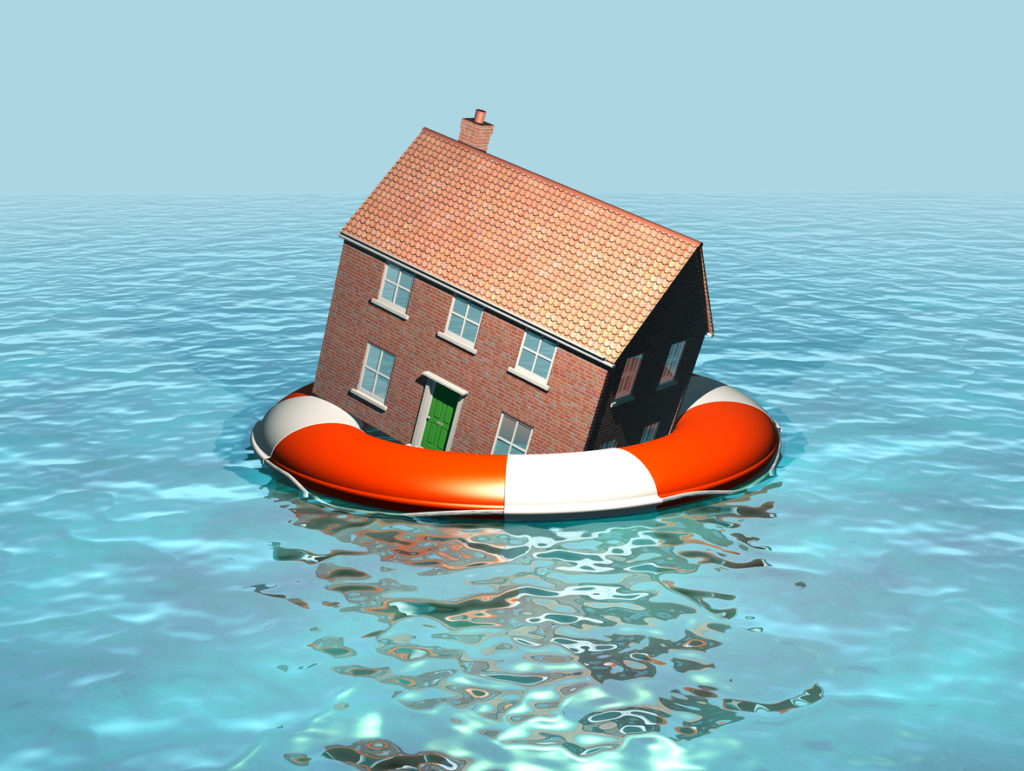When most people think about flooding, they imagine rain storms, hurricanes, and tropical storms that cause water to rise. However, floods can occur in even the safest areas from a very unpredictable and simple occurrence—melting snow. When snow melts during and after winter, it can pool around your property if you do not have the proper drainage measures in place. If this water leaks into your basement, you will be dealing with a flood that can cost you. Instead of waiting for a basement flood to happen, here are some helpful tips that you can implement to prevent melting snow from causing damage to your home.
How Does Melting Snow Cause Flooding?
Basement flooding from snow melting is caused when snow piles up around the foundation of your home or property in the winter, and melts as the temperature warms up. In combination with springtime rainfall, this accumulation of water can leak into the soil and penetrate the ground water, leading to flooding in your basement. This will not happen to every property—it depends on whether your foundation meets a “stress test.” If the foundation is vulnerable to penetration by ground water, the chances of you having water in your basement will rise.
iStock.com/philhol
Tips to Prevent Basement Flooding from Melting Snow
Many property owners may avoid waterproofing their basement for fear of the high cost. This has led some to ignore leaks and cracks that have caused minor problems in the past. Since wall cracks, leaks, and floods can be unpredictable, you should take preventative measures to protect your home and avoid a wet basement due to melting snow. Here are some helpful tips to keep your home safe during the winter.
Clear Snow off the Roof, Ice Dams, Overhangs, and around Your Property
All through the winter you should be sure to clear snow away from on top and around your house to prevent flooding due to snow melting. It may sound tedious and time-consuming, but whenever you shovel the snow around your property, clear away the rest of the snow to prevent basement flooding which can cause severe and sometimes unrepairable damage to your home.
Ensure Your Downspouts Are Clear
This is an important step to take during winter to prevent basement flooding. You should make sure downspouts are clear and unclogged so water can drain away safely. Shovel a path for the water to run a good distance away from the foundation of your home, or consider installing a longer pipe. Look out for icicles that may have formed around the base of the pipe that may prevent water from escaping, and check icicles that may have formed along your eaves. These can be cleared off as well to prevent any from falling and hurting someone.
Seal Cracks in the Basement
If you have reasonably sized cracks in your basement walls, these are the perfect pathways for water to seep in and end up in your basement. While you can buy a sealing kit from a local hardware store to seal up these cracks, concrete is still porous. That means, if enough water is resting on the outside of your basement walls, the water will find its way through the concrete and into your basement.
Test Sump Pump Regularly
Getting a sump pump will be a life saver if you have a finished basement. Insurance policies generally avoid covering water damage from outside water sources, so if snow melt leads to basement flooding you will likely be paying out of pocket to repair any damage. Sump pumps should be in good working condition, as many homeowners don’t realize it is sitting idle for months on end, when it should be functioning properly.
Inspect Your Gutters
Your gutters should be maintained all through the year. This is an easy way to prevent basement flooding. Ensure that all gutters are free of leaves and debris so that when the snow melts, it can move freely away from your roof. If the gutters are clogged, an overflow of water will occur, and this water will seek holes and cracks in your roofing to pass through. Checking for damage throughout the year is also a great way to prevent water from pooling and causing damage to your home.
Prevent Your Pipes from Freezing
Water freezes as it expands and this pressure on your pipes can lead to cracks, releasing gallons of water into your property per day! Pipes that are most prone to freezing are often exposed to severe freezing temperatures such as sprinkler lines, uninsulated pipes in your basement or attic, outdoor faucets, etc. To prevent frozen and cracked pipes, wrap them in heat tape or cables and make sure you turn off and blow out any outdoor pipes during the winter.
Call Flood Services Canada for Flooded Basement Cleanup in Caledon
If you need help for water damage cleanup in Caledon, or if you want advice for how you can get proactive and safeguard your home, Flood Services Canada can help you. Water leaking into your basement from the foundation of your home can be frustrating to repair during the winter months and it can be expensive if leaks are not dealt with immediately. Our professionals can save you from future damage to your home caused by damage you cannot see, and we can help you settle with your insurance company. We deploy our quick-response teams across Toronto, Oakville, Ajax, Whitby, Georgina, Barrie, Mississauga, and the Lakeshore to help homeowners in a tight situation. We’re ready to provide 24/7 sewage, water damage, and flood cleanup services and will use the best techniques, personnel, and technology to ensure your home or business is clean, safe, and dry as soon as possible. Contact us at (416) 302-2107 to learn more about our water damage cleanup services, or use our emergency hotline at (416) 999-3930 to get our rapid-response teams deployed to your location.

